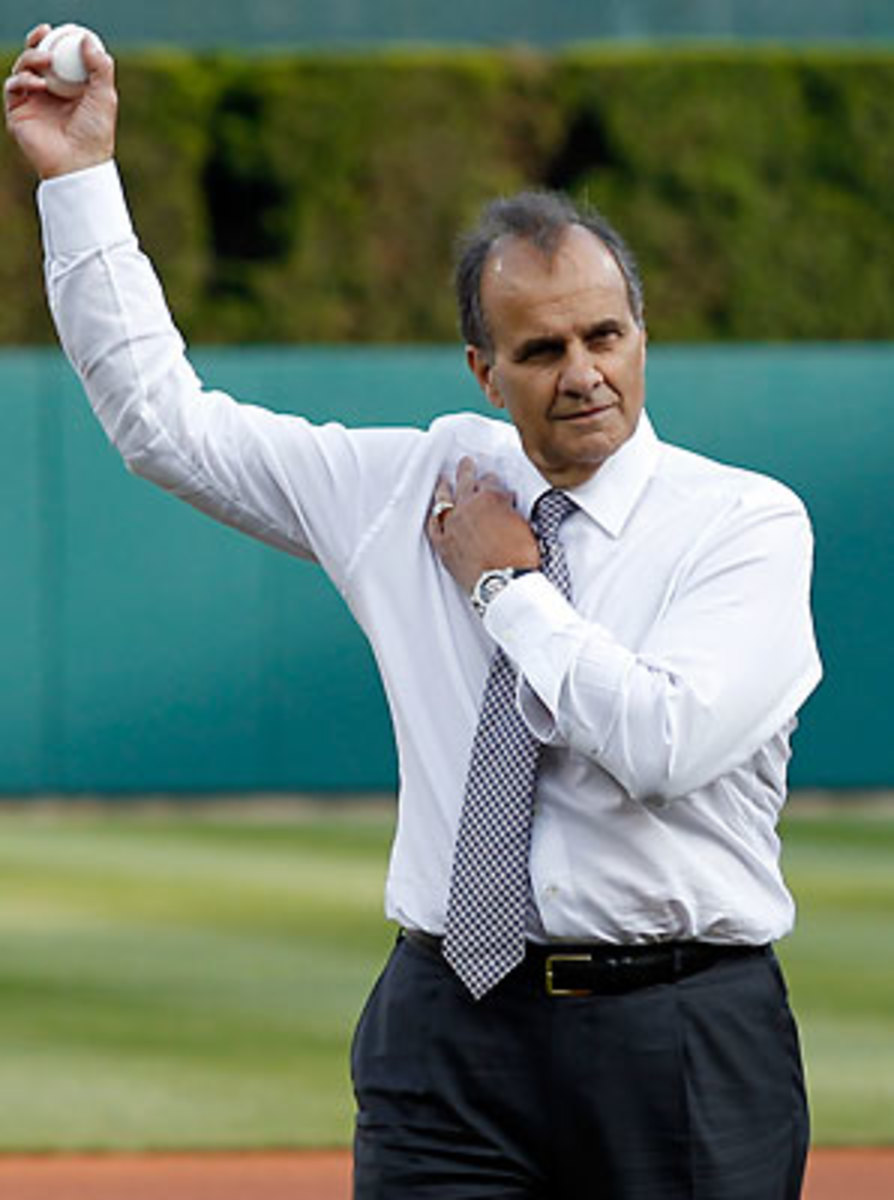Torre gives World Baseball Classic badly-needed jolt of publicity


Americans living abroad are often called Yankees, a fitting link given that storied former New York Yankees manager Joe Torre will now lead Team USA in next year's World Baseball Classic.
There are similarities between Torre's former gig, one that likely earned him a place in the Hall of Fame one day, and his new one. The New York franchise Torre inherited in 1996 had made its first playoff appearance in 14 seasons the previous year and had sufficient talent on the roster to contend for several years. Needless to say, it all worked out, as Torre's Yankees won the World Series in 1996, '98, '99 and 2000 while making the playoffs all 12 of his seasons in the Bronx.
Team USA, meanwhile, is a similar sleeping giant after having finished sixth and fourth, respectively, in the first two World Baseball Classics in 2006 and '09. Among the bountiful roster decisions to be made -- all of which can be classified as "good problems to have" -- is whether to employ, among many others, Justin Verlander, CC Sabathia, Clayton Kershaw or Roy Halladay as the No. 1 pitcher, or who starts in centerfield among Matt Kemp, Josh Hamilton, Curtis Granderson, Andrew McCutchen, Adam Jones and Mike Trout?
The key difference, of course, is fan interest. While the Yankees had the most successful history and tradition in American pro sports, the WBC has yet to fully resonate among the average U.S. baseball fan. Maybe it's the timing of the tournament during spring training and opposed by March Madness. Maybe it's the fact that Team USA hasn't won it yet. (Japan has won both.)
But if the tournament is ever going to take off domestically, this may be its best chance.
This summer, baseball will not be held at the Summer Olympics for the first time in the past eight Games, the last five as a medal sport. That makes the WBC the undisputed biggest international baseball competition.
"It magnifies what we do in the Classic," Torre said of the Olympics cutting baseball. "We certainly feel that responsibility. I know that [commissioner Bud Selig] is very proud of where we've come to here, that so many different countries are interested in being a part of this."
While the previous two tournament had 16 competing countries, this one will have a play-in qualifier of 16 countries from which four will advance to join 12 whose success in the last tournament reserved their spots; that means 28 countries in all will participate.
Selig believes strongly in the event, and certainly it could be a vehicle to grow the game in international markets (Europe, for instance) where it's not remotely popular. There's no fast and easy solution to making the WBC an important date on the calendar in less enthused baseball countries, but it undoubtedly would help if it had more resonance in the U.S. first.
After all, if MLB is the driving force behind the WBC, it'll need more domestic support before it becomes popular abroad. An appeal to nationalistic pride makes more sense without baseball's inclusion in the Olympics and Torre, though he's managed five major league teams, will be making his international debut.
"I haven't put on the uniform yet," Torre said, "but it's certainly going to make a difference to have the USA on there."
Players win games, of course, but Torre's stature can only help. Level-headed and baseball smart, he ought to have the respect of his players, and it certainly doesn't hurt that he makes his day job as Major League Baseball's senior vice president of baseball operations, a position he said he'd juggle while managing the WBC squad.
Torre brings two qualities to the table that the two previous managers, Buck Martinez and Davey Johnson, did not. (Given the concurrence with major league spring training, only inactive skippers are reasonable options.) Torre has more experience than anyone in baseball at managing highly paid veteran superstars. And he brings his own star power from having been so successful in New York.
Not only did Torre manage payrolls of some $200 million with the Yankees, but his six World Series appearances made him a mainstay in the All-Star Game dugout. The latter was almost always in its traditional role as a one-game exhibition each time Torre managed -- only his last Midsummer Classic, in 2004, determined homefield advantage in te World Series -- but his role still carried a bit of ego-massaging, though not as much as the former, when he managed, promoted and defended the star-studded Yankees for 162-game seasons while working for the late George Steinbrenner and dealing with the insatiable New York media.
"They're going to understand that we can only put nine guys on the field," Torre said of his as-yet undecided roster.
Torre, who said he has no interest in pursuing another full-time manager job, brings his own wattage to the tournament. Johnson also had success managing in New York, but his World Series title with the Mets was 23 years before he took over the WBC and he was nine years removed from any major league managerial gig.
Torre, on the other hand, managed the Dodgers in 2010 and won his fourth World Series title with the Yankees in 2000. Even in his introductory conference call, New York writers began asking him about the prospects of Derek Jeter and Alex Rodriguez being on his Team USA roster -- discussion of such bold-faced baseball names can only help the WBC's relevance. Maybe some day such a question of whether A-Rod will make Team USA will carry the importance of whether David Beckham makes England's World Cup team.
For all of this to matter, the team needs, first and foremost, to win.
"We want to win," Torre said. "That's a given. That's the only reason you take a job like this."
